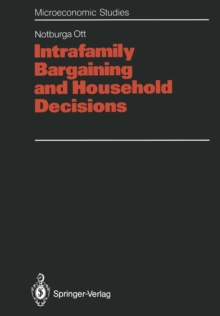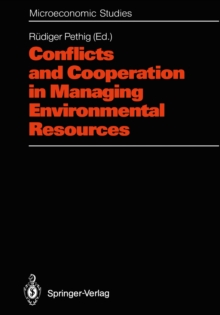
Taxation, Housing Markets, and the Markets for Building Land : An Intertemporal Analysis PDF
by Bernd Gutting
Part of the Microeconomic Studies series
Description
Almost everywhere in the world housing policies play an important role in government programs.
Especially in the industrialized Western economies housing policy issues are triggered mainly by two developments: growing population density and increasing environmental pollution enforce a systematic planning of regional and urban development; all social groups want to participate in the increasing welfare of the domestic economies; until today housing policy is considered an appropriate tool for redistribution and social policy.
Taxation serves as an important instrument for the realization of the political objectives mentioned above.
Surprisingly, there exists wide-spread consent (even on the academic side) on the effectivity of this instrument.
However, strictly speaking this consent concerns only the short run.
Long-term effects are usually ignored. Therefore, there is always the inherent risk in these policies that (supposed) market inefficiencies will not be cured, but merely carried forward, and possibly amplified.
Moreover, it is characteristic for the political discussion that there is no consistent notion of what efficient housing and land markets ought to look like.
Generally accepted for example, is the position that land speculation should be fought whereever possible.
Hardly anyone asks the question whether the holding of building land will be beneficial to the economy as a whole, and not only to the speculant.
Information
-
Download - Immediately Available
- Format:PDF
- Publisher:Springer Berlin Heidelberg
- Publication Date:06/12/2012
- Category:
- ISBN:9783642456305
Information
-
Download - Immediately Available
- Format:PDF
- Publisher:Springer Berlin Heidelberg
- Publication Date:06/12/2012
- Category:
- ISBN:9783642456305










